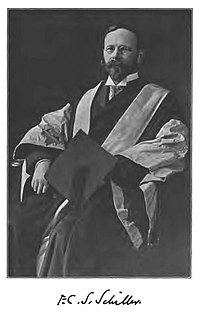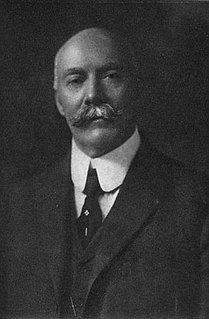A Quote by F. C. S. Schiller
A mind unwilling to believe or even undesirous to be instructed, our weightiest evidence must ever fail to impress. It will insist on taking that evidence in bits and rejecting item by item. As all the facts come singly, anyone who dismisses them one by one is destroying the condition under which the conviction of a new truth could ever arise in the mind.
Related Quotes
The world is broken, and all our attempts to fix it will inevitably fail, and some day all life will be extinguished from the planet and there will be no one to remember that any of us ever did anything. But this fact, strangely, does not delegitimize hope, because every now and again we find evidence that hope is helpful. This evidence, in my opinion, should be celebrated-even as we lament? and fight the devastation.
The very fact that religions are not content to stand on their own feet, but insist on crippling or warping the flexible minds of children in their favour, forms a sufficient proof that there is no truth in them. If there were any truth in religion, it would be even more acceptable to a mature mind than to an infant mind--yet no mature mind ever accepts religion unless it has been crippled in infancy.
Faith affects the whole of man's nature. It commences with the conviction of the mind based on adequate evidence; it continues in the confidence of the heart or emotions based on conviction, and it is crowned in the consent of the will by means of which the conviction and confidence are expressed in conduct.
It is a psychological law that whatever we desire to accomplish we must impress upon the subjective or subconscious mind; that is, we must register a vow with ourselves, we must make our resolution with vigor, with faith that we can do the thing we want to do; we must register our conviction with such intensity that the great creative forces within us will tend to realize them. Our impressions will become expressions just in proportion to the vigor with which we register our vows to accomplish our ambitions, to make our visions realities.
Day by day and almost minute by minute the past was brought up to date. In this way every prediction made by the Party could be shown by documentary evidence to have been correct; nor was any item of news, or any expression of opinion, which conflicted with the needs of the moment, ever allowed to remain on record. All history was a palimpsest, scraped clean and reinscribed exactly as often as was necessary.
You will be favourable to Burr, and so must fail because the American reader cannot bear a surprise. He knows that this is the greatest country on earth, Washington the greatest man that ever lived, Burr the wickedest, and evidence to the contrary is not admissible. That means no inconvenient facts, no new information. If you really want the reader's attention, you must flatter him. Make his prejudices your own. Tell him things he already knows. He will love your soundness.
If you intend to study the mind, you must have systematic training; you must practice to bring the mind under your control, to attain to that consciousness from which you will be able to study the mind and remain unmoved by any of its wild gyrations. Otherwise the facts observed will not be reliable; they will not apply to all people and therefore will not be truly facts or data at all.
It is not true that a man can believe or disbelieve what he will. But it is certain that an active desire to find any proposition true will unconsciously tend to that result by dismissing importunate suggestions which run counter to the belief, and welcoming those which favor it. The psychological law, that we only see what interests us, and only assimilate what is adapted to our condition, causes the mind to select its evidence.
When even the brightest mind in our world has been trained up from childhood in a superstition of any kind, it will never be possible for that mind, in its maturity, to examine sincerely, dispassionately, and conscientiously any evidence or any circumstance which shall seem to cast a doubt upon the validity of that superstition. I doubt if I could do it myself.
When things go wrong in our life and we encounter difficult situations, we tend to regard the situation itself as our problem, but in reality whatever problems we experience come from the side of the mind. If we were to respond to difficult situations with a positive or peaceful mind they would not be problems for us; indeed, we may even come to regard them as challenges or opportunities for growth and development. Problems arise only if we respond to difficulties with a negative state of mind. Therefore, if we want to be free from problems, we must transform our mind.
But what, after all, is faith? It is a state of mind that leads people to believe something - it doesn't matter what - in the total absence of supporting evidence. If there were good supporting evidence then faith would be superfluous, for the evidence would compel us to believe it anyway. It is this that makes the often-parroted claim that 'evolution itself is a matter of faith' so silly. People believe in evolution not because they arbitrarily want to believe it but because of overwhelming, publicly available evidence.









































